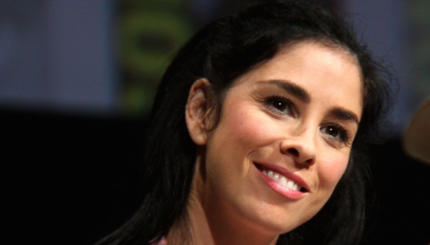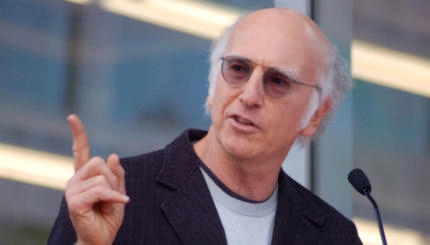As levels of discrimination against the LGBTQ community in this country appear to be ever-rising (the removal of guidelines protecting trans students in schools, and the looming ban on transgender service members in the military), members of the Jewish community might be wondering how they can become better allies to their LGBTQ congregants, students, neighbors, friends and family. You can begin this work by understanding the history of the rights that we have fought hard to gain.
A Brief Timeline of LGBTQ American History
- Throughout the 1950s and 1960s, the F.B.I. and police department kept lists of known members of the LGBTQ community and their favored establishments. State and local governments followed suit: Bars catering to our community were shut down, and their customers were arrested and exposed in newspapers. Cities performed “sweeps” to rid neighborhoods, parks, bars, and beaches of gay people. They outlawed the wearing of opposite gender clothes, and universities expelled instructors suspected of being queer. Thousands of LGBTQ individuals were publicly humiliated, physically harassed, fired, jailed, or institutionalized in mental hospitals. Many lived double lives, keeping their private lives secret from their professional ones.
- We fought back. In 1966, drag queens and gender non-conforming folks were sitting in Compton’s Cafeteria in San Francisco when police arrived to arrest those dressed as women. A riot ensured over the span of a few days. Across the country, led by two trans women of color—Sylvia Rivera and Marsha P. Johnson—we rebelled. The Stonewall Riots, which scholars and activists mark as the birth of the modern LGBTQ civil rights movement, occurred in 1969 in response to police raids at the Stonewall Inn, a bar in New York City. Action sprouted up around the country and the Gay Liberation Front was formed. The first “Gay Pride” was held on June 28, 1970 in New York to mark the anniversary of the Stonewall riots. By 1972, Pride had spread to Atlanta, Buffalo, Detroit, Washington, D.C., Miami, Minneapolis, Philadelphia and San Francisco.
- In the 1980s, we faced the AIDS crisis, which decimated the LGBTQ community. We were left abandoned by many in our country—so we had to fight for our own lives. The plays The Normal Heart by Larry Kramer and Angels in America by Tony Kushner are great representations of queer life in America at that time.
- With the 1990s and early 2000s came ground-breakers like Ellen, Will and Grace, and Elton John—but LGBTQ rights still remained a topic that flew largely under the radar. This was also the age of the murder of Matthew Shepard, “Don’t Ask, Don’t Tell,” and the Defense of Marriage Act.
I was born and raised in Southwestern Ohio, in the suburbs of Cincinnati, in 1987. My parents didn’t know anything about what I was going through, because I didn’t feel comfortable coming to them with questions about it. When the birds and the bees talk happened, it was framed in a way that assumed I was heterosexual. My childhood best friend, with whom I spent nearly every day growing up, suddenly stopped being my friend in middle school. I never knew why, but thought it had something to do with my tendency to want to play Barbies with his sister and me being a social liability in the “why are you friends with the gay kid” kind of way. Starting from elementary school, I was called the F-word, which is also the word for a bundle of sticks (it’s a word that still holds a lot of emotional power for me, so I never use it) before anyone else knew what it really meant. I carried my books close to my chest “like a girl” instead of by my side “like a boy.” I was awful at sports. I made friends with girls easily. I was small and thin. Growing up, I felt rejected from nearly all of the most important relationships in my life. My goal was to be invisible, to get by and to not stand out. These patterns of behavior and thinking morphed into depression, anxiety, and other confidence issues—battles I’m still waging to this day.
My synagogue was small and Conservative. The rabbi was very traditional and our religious school director was an ultra-Orthodox woman—very well-meaning and committed to Jewish community and education, just not committed to discussing LGBTQ issues. I spent a lot of my days in services and Hebrew school, and my synagogue was effectively a second home. Imagine how different my adolescence could have been had that space been inclusive and welcoming. Were people openly hostile? No, but I wasn’t openly out yet. Silence can be just as harmful as outright hostility. Many of us are constantly navigating spaces to determine if they are safe for us. The world was bombarding me with messages that I was not normal. My synagogue was complicit in these messages by not stating that exclusion went against their values.
My desire to do work surrounding inclusion and social justice is deeply rooted in Jewish values. Within the walls of my synagogue, I learned “I am my Brother’s Keeper”—our responsibility to look out for each other, and “Tikkun Olam,”—to repair the world. It is our duty as Jews to make the world a better place.
There is a long history of Jewish activism for economic, racial, and LGBTQ equality. The Jewish community inherited our own history of oppression that calls upon us to do better. We must be kind to the stranger because we know what it is like to be one. A great deal of Jewish tradition is a call for empathy. Rabbi Hillel once said, “What is hateful to yourself, do not do to your fellow man. That is the whole Torah; the rest is just commentary.”
Minority communities, which can easily feel isolated and under attack, need to know that they are not alone in their fight for inclusion. To be an ally is to work towards a more inclusive world for all individuals, regardless of their identity. While the LGBTQ community has won many victories, we continue to face discrimination and oppression every day.
Do’s and Don’ts to make you a better ally:
- If someone comes out to you or you are met with an identity that you don’t understand, DO thank them for their courage. Prioritize making them feel safe, loved, and valued. DON’T question their identity.
- DO actively use a person’s correct pronouns both when they’re around and when they are not. Normalize pronoun sharing by sharing your own when you introduce yourself, and by putting it in your email signature. Correct other people when they misgender someone by using the wrong pronouns.
- When you are talking to young people about sexual health, DO include multiple perspectives and experiences. Support them as they learn about themselves. DON’T view it as a “phase.”
- DON’T assume the gender or sex of someone’s significant other. Be mindful of the times that we use gender stereotypes and reinforce them, even when they seem harmless. DON’T laugh at jokes that make fun of those whose gender expression is outside the norm (men who are feminine or women who are masculine).
- DO only use the name someone tells you is theirs. DON’T refer to their birth name if that is not what they have introduced themselves to you. DON’T ask, “What’s your real name?” or inquire about someone’s surgical status or genitals.
- DO avoid other gendered language whenever possible. Instead of saying “guys,” “ladies and gentlemen,” and “boys and girls,” say “folks,” “friends,” “everyone,” or “children.”
- DO educate yourself on the issues facing LGBTQ individuals. Actively use your privilege as a cisgender and/or heterosexual person to make the world better for your LGBTQ friends and family. Speak out in support of LGBTQ civil rights. Educate yourself and take in the media of LGBTQ individuals—TV, books, articles, art, music, etc.
So much of the work of allyship is to take that extra moment to be a bit more mindful of the words we use and live another Jewish value, Shmirat Halashon—guarding our use of language. We are imperfect beings. Make a mistake? Apologize, correct yourself, move on, and commit to doing better. This is hard work. It takes a lot of unlearning prior ways of thinking and socialization. As we look ahead to the weeks and months to come, may we all have the strength and courage to become the better allies we all need in our lives because, from time to time, we all know what it feels like to be the stranger.


